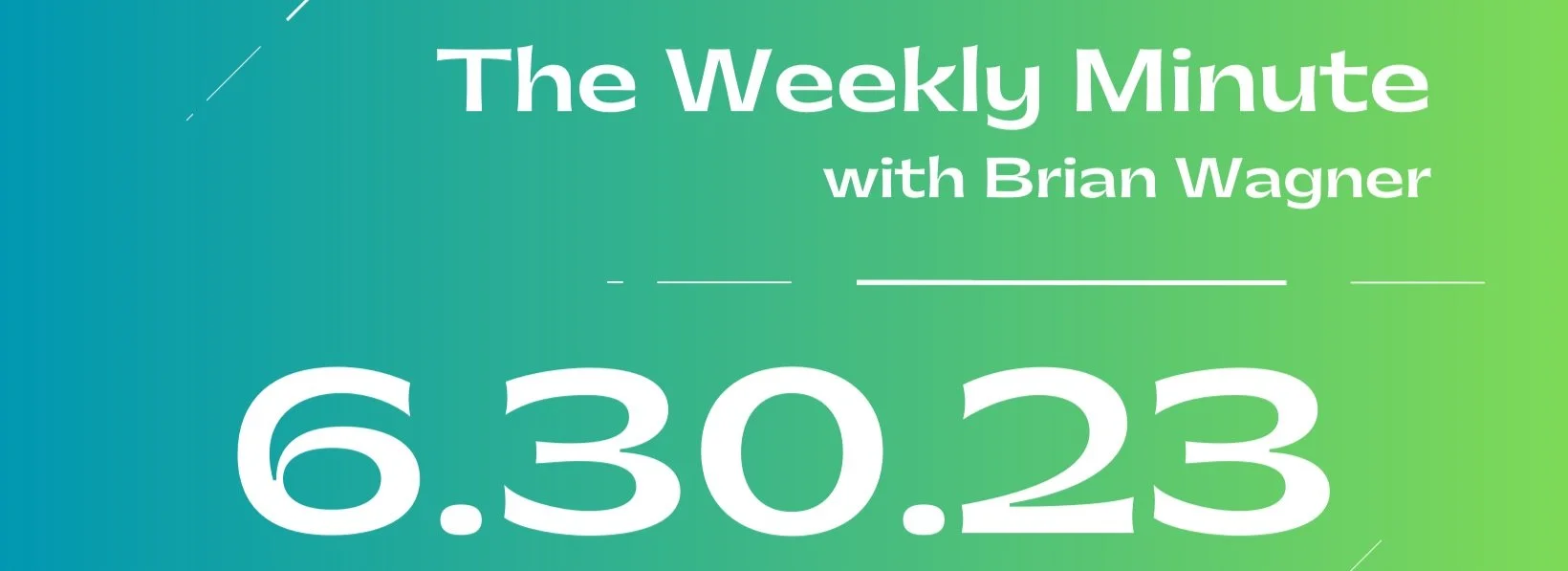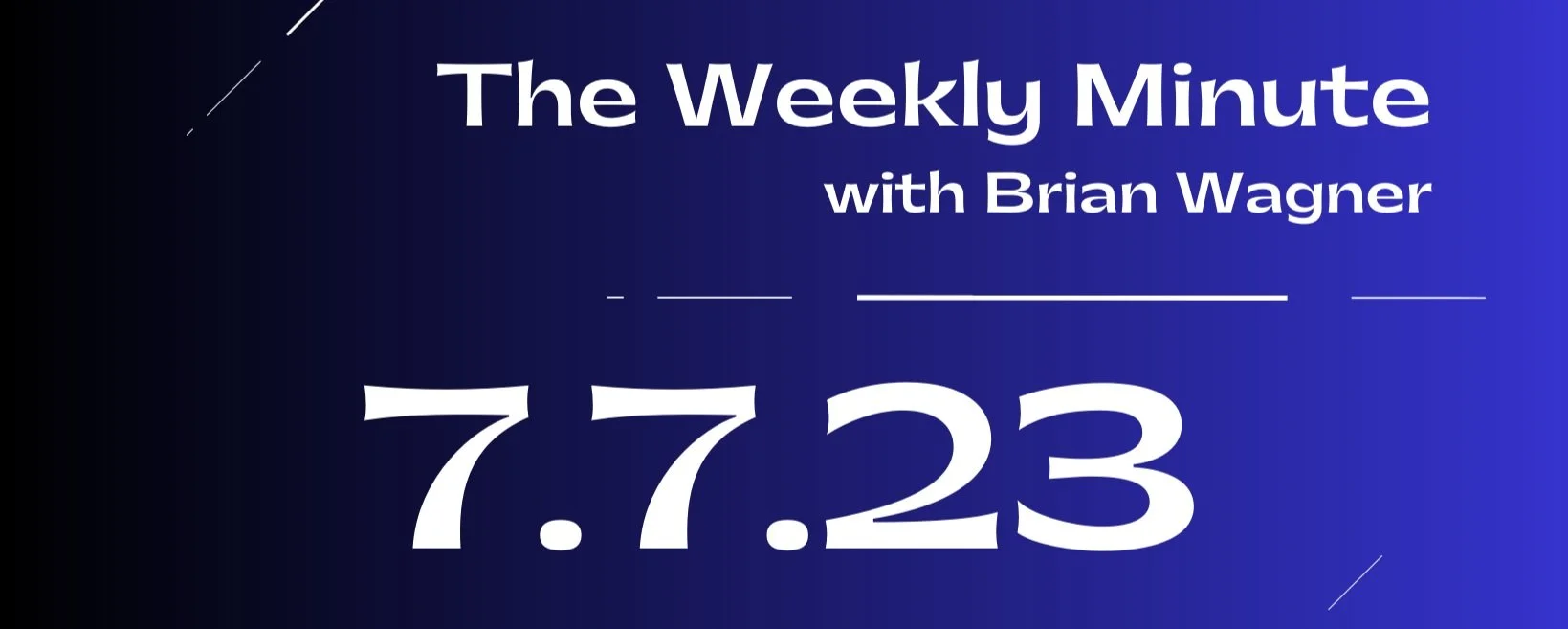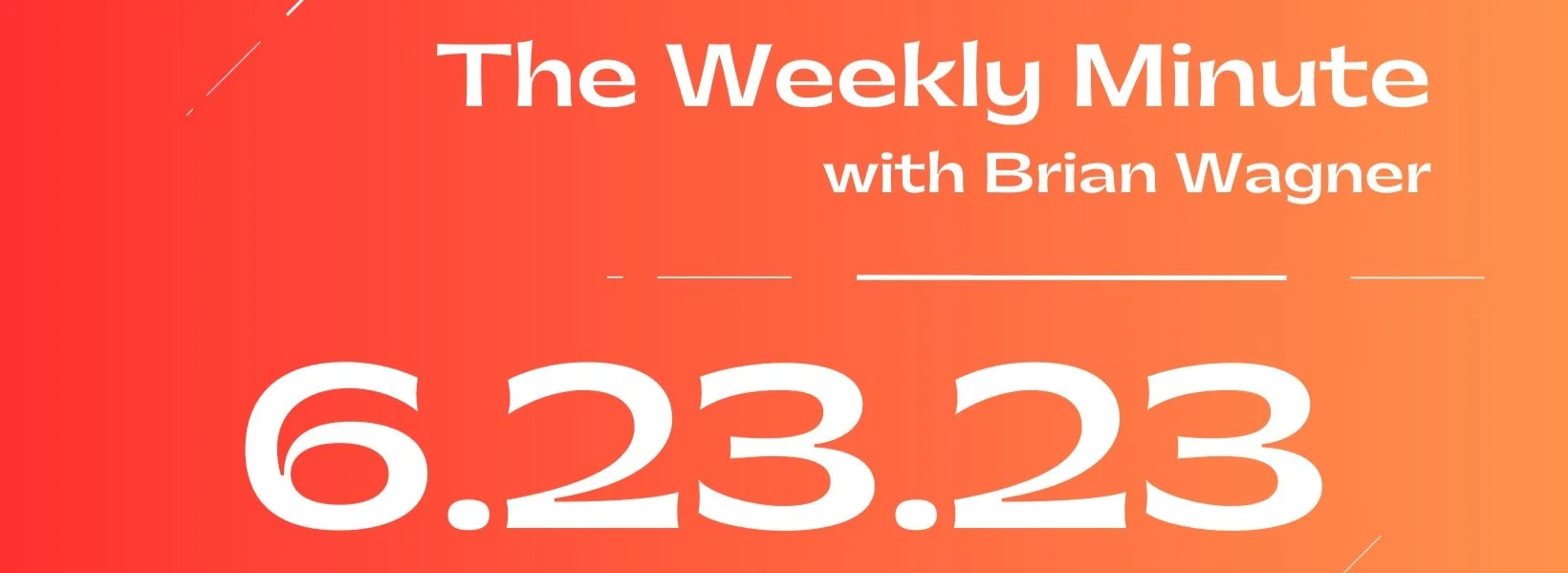The Weekly Minute - June 30, 2023
One of the better holidays of the year is lastly approaching. Happy 4th to all of my readers out there! Stay safe and have fun as we celebrate America's independence.
What I Read
Pour Out Lesser Ideas to Get to Great Ones (via Range Widely)
Your best ideas don't usually come first, and this story surrounding famous composers is incredibly insightful. David Epstein found it especially interesting that Johann Bach apparently played “lesser” music just to get his brain going, and to stimulate ideas that he would use for his own improvisation and composition.
I love this so much as it shows the importance of getting “pucks on net”, “shots up” and “more at-bats." — to use a few sports analogies.
To conclude his post, Epstein shares a few creativity tactics to start off “slow” and finish “hot”
Start with someone else’s stuff to get your own stuff going.
Start somewhere bad to get somewhere good.
Just have more ideas.
One Philosophy
The Apple Marketing Philosophy
Written by Steve Jobs and Mike Markkula in 1977, this philosophy brilliantly sums up marketing as it’s anchored around three pillars: empathy, focus and impute.
What hits home to me is the attention on the customer and importance of prioritization.
Healthcare Corner
Redefining Health Care: Integrating Tech for a Consumer-Centric Focus (via TechNewsWorld)
This post is an interview with Josh Builder, chief technology officer of Signify Health. Thematically, he contends that businesses in today’s world need to understand that technology should not be an afterthought or add-on capability. Rather, it should be woven into the fabric of the organization and its business operations.
"So maybe healthcare is a bit like that music store from the '90s. It once had a pretty clear model and ecosystem," he said. "But now things are different, and we are engaging people in a whole new host of ways."
One Story
The Parable of the Farmer
I recently heard this parable in a team meeting and it struck me with its power of perspective.
There is an age-old Chinese parable about a farmer and his fate, and it goes like this:
There once lived an old farmer who had diligently tended to his crops for many years. He relied on his trusty, hard-working horse to plow the fields. But one day, the horse broke through the fence and ran away. Upon hearing this news, the farmer’s neighbors rushed over to the farmer to voice their concern. “What bad luck this is,” they said, “You will not have your horse during the critical planting season.” The farmer listened intently, nodding his head as if in agreement, smiling slightly. Then he spoke softly, “Bad luck, good luck — who really knows?”
A few days later the horse, accompanied by two wild horses, returned to the farmer’s stable. The farmer immediately realized that he could train these two new horses to help him plow his field more efficiently. Soon after, the neighbors heard about this and visited the farmer. “You are now blessed with three strong horses,” they said in unison, “What great luck this is!” But the laconic farmer simply replied, “Good luck, bad luck — who really knows?”
The farmer gave one of the untamed horses to his son. While riding the horse, the son was thrown off and broke his leg. The farmer’s neighbors came around again and expressed their worry, “It is a shame that your son will not be able to help you during planting season. This is such bad luck!” The farmer smiled faintly, and said “Bad luck, good luck — who really knows?”
A few days later, the Chinese emperor’s army rode ominously into town under gray clouds. The general’s order was to draft the eldest son from every family into the army. One of the soldiers took one look at the farmer’s son’s broken leg and motioned to have him left behind. The army marched out of town while tearful residents waved goodbye to their sons, knowing that they may not see them again. Later in the day, the neighbors gathered at the farmer’s house. “You are the only family that did not have their son drafted into the army,” they said. “This is such good luck!” The farmer, who was busy with his chores, looked up and said, “Good luck, bad luck — who really knows?”
One should never feel down and hopeless because challenging times lead to happier, better days ahead. The proverb also introduces a very important metaphor about life — every situation in life is transitory; gray clouds that create dark days will eventually pass, allowing the sun’s radiant light to shine through.
See you next week!



